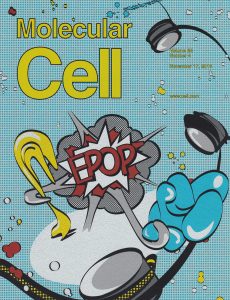Multipotency is the property of different cell types to self-renew and to generate specialized progeny through multistep differentiation processes.The best proxy for this is embryonic stem cells (ESCs) that maintain a pluripotent potential through a unique network of transcription factors aimed to ensure proliferation and to prevent undesired differentiation onset. Extensive studies have been carried out to characterize the mechanisms behind the maintenance of pluripotent/multipotent states, as well as the mechanistic aspects that govern the timely response to differentiation stimuli. Among the several complexes implicated in ES cells differentiation, Polycomb group of proteins are particularly fascinating, having a major role in controlling epigenetic memory, repressing gene expression, and contribute to cancer. Di Croce’s laboratory shows that the a novel Polycomb-associated factor EPOP/C17orf96 mediates binding of Elongin factors at Polycomb-repressed genomic targets to sustain low-level expression of the corresponding genes.
This articel received that cover from the journal, and highlighted in the New&Views of Ferrari et al ‘The Dual Role of EPOP and Elongin BC in Controlling Transcriptional Activity’, Molecular Cell, 64, 637-38.
Reference
Beringer M, Pisano P, Di Carlo V, Blanco E, Chammas P, Vizán P, Gutiérrez A, Aranda S, Payer B, Wierer M & Di Croce L 2016, ‘EPOP Functionally Links Elongin and Polycomb in Pluripotent Stem Cells’, Molecular Cell, 64, 645-58.
